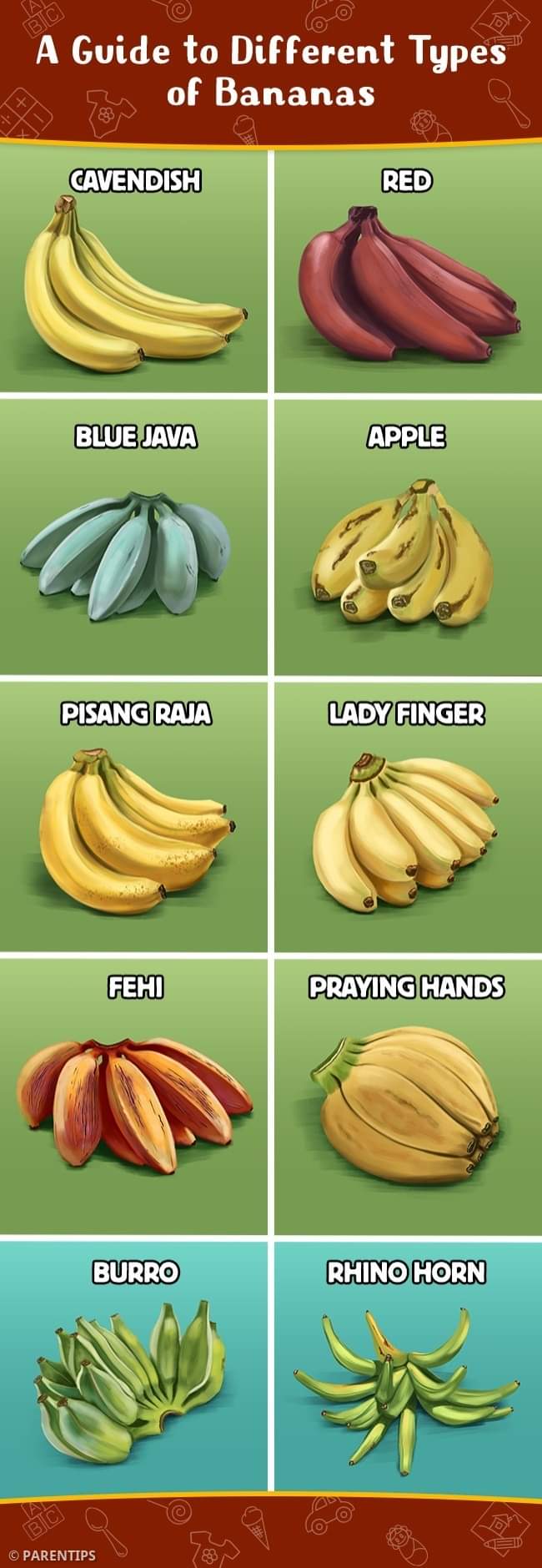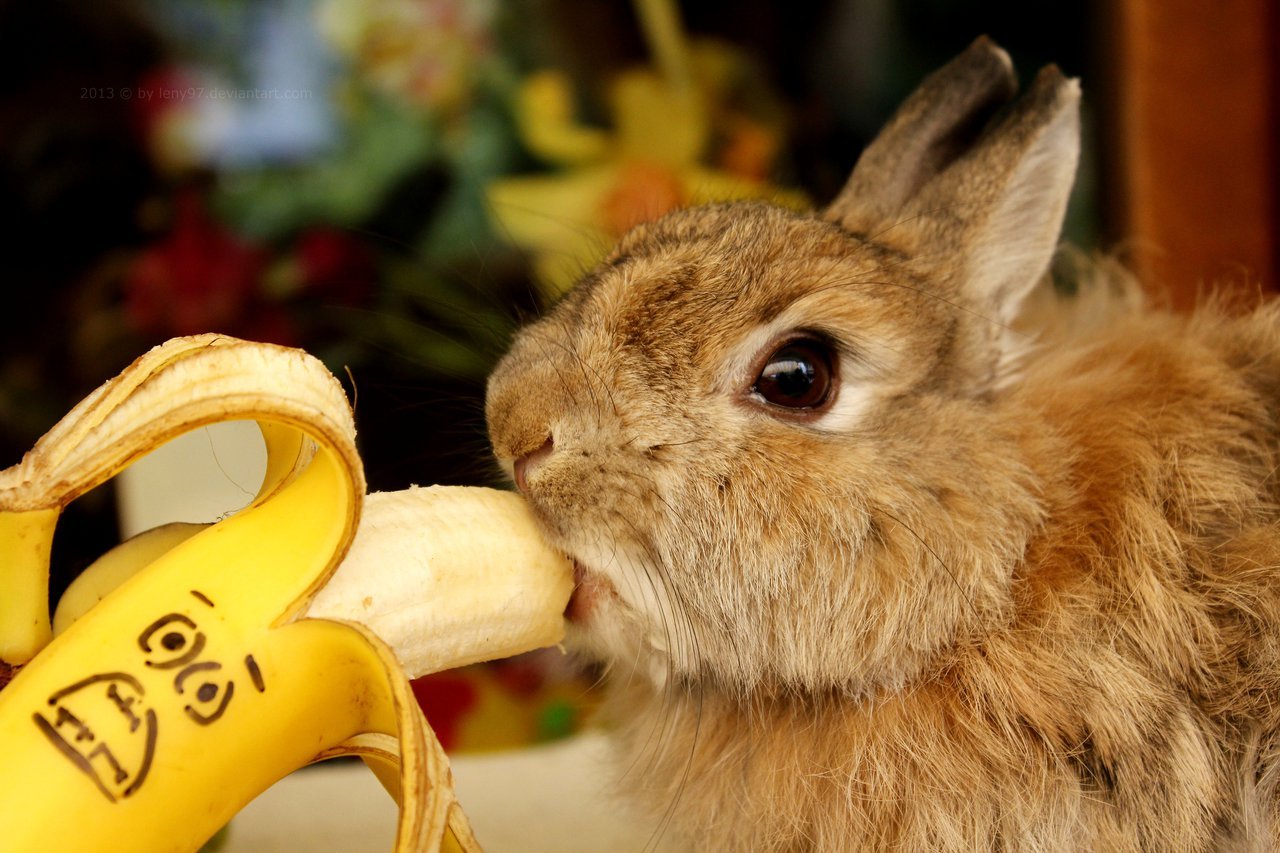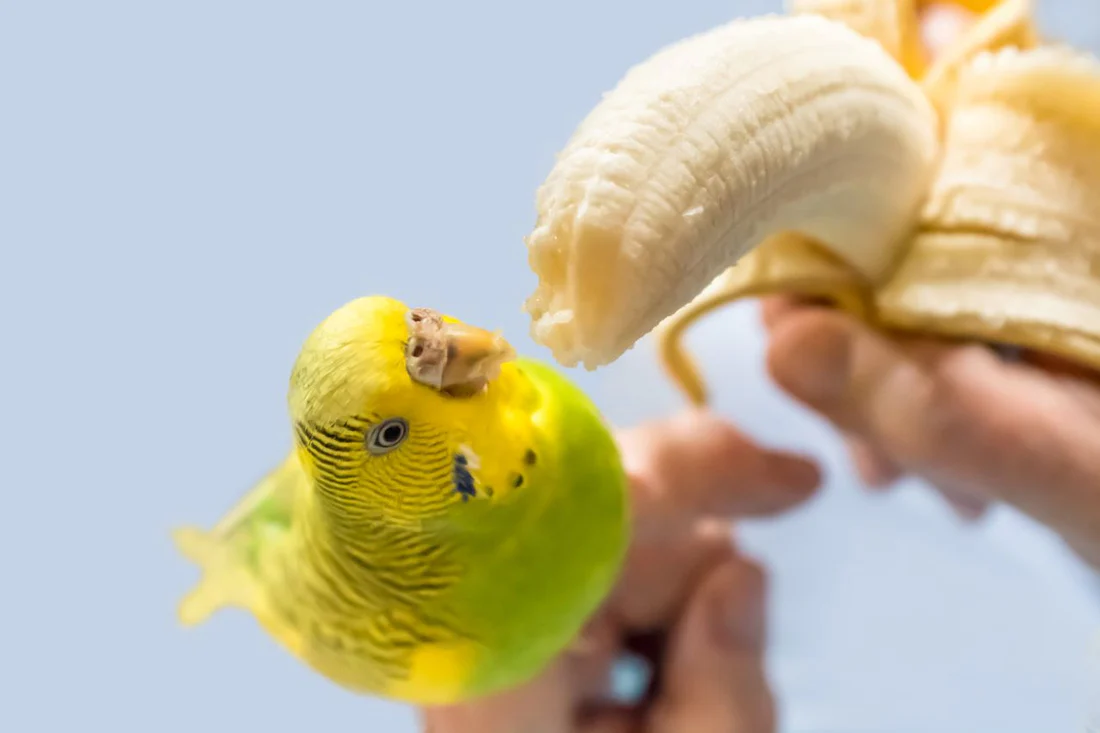Article-at-a-Glance
- Banana plants, including their leaves, are generally non-toxic to pets like dogs, cats, rabbits, and birds.
- While bananas are safe, the peels should be avoided due to potential digestive issues.
- Bananas offer health benefits such as vitamins and minerals, but should be given in moderation.
- ASPCA lists bananas as non-toxic, making them a safe treat for most pets.
- When feeding pets bananas, ensure they are ripe and serve in small, manageable pieces.
Understanding the Basics of Edible Banana Plants
Bananas are more than just a tasty fruit; they are a staple in many households and have a rich history. Understanding the basics of banana plants can help you appreciate their role in our lives and their potential benefits for pets.
“Types of bananas : r/coolguides” from www.reddit.com and used with no modifications.
Origins and Varieties of Edible Bananas
Bananas have a fascinating origin story. They are believed to have originated in Southeast Asia and the South Pacific, with evidence of cultivation dating back thousands of years. Today, bananas are grown in tropical regions around the world. The most common variety we see in grocery stores is the Cavendish banana, known for its creamy texture and sweet taste. However, there are numerous other varieties, each with unique flavors and uses.
Nutritional Content of Bananas
Bananas are a powerhouse of nutrition. They are rich in essential vitamins and minerals such as potassium, vitamin C, and vitamin B6. Potassium is crucial for maintaining healthy blood pressure levels, while vitamin C boosts the immune system. Vitamin B6 plays a role in brain health. In addition to these nutrients, bananas provide dietary fiber, which aids in digestion.
These nutritional benefits are not just for humans. Pets can also enjoy some of the advantages bananas offer, making them a popular treat for many pet owners.
Noncommercial, Residential Backyard Growing Tips for Bananas
Growing bananas in your backyard can be a rewarding experience. Although they thrive in tropical climates, with the right care, you can cultivate banana plants in non-tropical areas too. Here are some tips to get you started:
- Choose the right variety: Look for varieties that are suitable for your climate. Dwarf Cavendish and Lady Finger bananas are popular choices for backyard gardens.
- Provide adequate sunlight: Banana plants require full sun to grow well. Ensure they receive at least 6-8 hours of direct sunlight daily.
- Water regularly: Bananas need consistent moisture, so water them deeply and regularly, especially during dry spells.
- Fertilize appropriately: Use a balanced fertilizer to provide the necessary nutrients. Apply it every month during the growing season.
- Protect from cold: If you live in a cooler climate, consider growing bananas in pots so you can move them indoors during cold weather.
By following these tips, you can enjoy fresh bananas from your garden and provide a safe, natural treat for your pets.
Bananas and Pet Safety
Now that we understand the basics of banana plants, let’s delve into their safety for pets. It’s crucial to know which parts of the banana plant are safe and how they can benefit our furry and feathered friends. For example, exploring non-toxic plants like the Florida Butterfly Orchid can provide insights into pet-safe gardening.
“Can Dogs Eat Bananas? – Paw Print” from www.pawprintpetblog.com and used with no modifications.
ASPCA Classification of Bananas as Non-Toxic
The American Society for the Prevention of Cruelty to Animals (ASPCA) classifies bananas as non-toxic to pets, which is reassuring for pet owners. This means that bananas, including the fruit and leaves, are generally safe for dogs, cats, rabbits, and birds. However, moderation is key, as with any treat. For those interested in growing their own, here’s a guide on how to grow and care for a banana tree.
Parts of the Banana Plant Safe for Pets
While the banana fruit is safe, pet owners should be cautious with other parts of the plant. Here’s a quick breakdown:
- Banana Fruit: Safe and nutritious, but should be given in moderation.
- Banana Leaves: Generally non-toxic and can be used as a natural chew toy for some pets.
- Banana Peels: Avoid giving peels to pets as they can cause digestive issues and are difficult to chew.
It’s essential to monitor your pet’s reaction when introducing any new food, including bananas. If you notice any adverse reactions, discontinue feeding and consult your veterinarian. For more information on non-toxic plants safe for pets, you can explore other resources.
Potential Health Risks for Pets
Although bananas are safe, they can pose certain risks if not fed properly. Here are some potential concerns:
- Digestive Upset: Overfeeding bananas can lead to digestive issues such as diarrhea or constipation.
- Allergic Reactions: While rare, some pets may be allergic to bananas. Watch for signs like itching, swelling, or difficulty breathing.
- Weight Gain: Bananas are high in sugar, so excessive feeding can contribute to weight gain, especially in pets prone to obesity.
To ensure your pet’s well-being, always feed bananas in moderation and as part of a balanced diet.
Health Benefits of Bananas for Pets
Bananas are more than just a delicious snack for humans; they offer a variety of health benefits for our pets as well. The fruit is packed with essential nutrients that can contribute positively to the well-being of dogs, cats, rabbits, and birds. Understanding these benefits can help pet owners make informed decisions about including bananas in their pets’ diets.
One of the key advantages of bananas is their high potassium content, which supports muscle function and helps maintain a healthy heart. Additionally, bananas contain vitamin C, which boosts the immune system, and vitamin B6, which aids in brain health. The dietary fiber found in bananas also promotes healthy digestion, making them a great occasional treat for pets. For more information on pet-safe edible plants, consider exploring other non-toxic options.
“Can Dogs Eat Bananas?” from www.petco.com and used with no modifications.
Benefits for Dogs
- Improved Digestion: The fiber in bananas can help regulate a dog’s digestive system, preventing constipation.
- Energy Boost: Bananas provide natural sugars and carbohydrates, offering a quick energy boost for active dogs.
- Heart Health: Potassium in bananas supports heart function and helps maintain a healthy blood pressure.
Incorporating bananas into your dog’s diet can be a delightful way to provide these benefits. However, it’s essential to serve them in moderation. Too much banana can lead to digestive upset or weight gain. A small slice or two as an occasional treat is sufficient for most dogs.
When feeding bananas to dogs, always remove the peel and cut the fruit into small, manageable pieces to prevent choking hazards. You can also mash the banana and mix it with their regular food for a tasty twist. For more information on safe fruits for pets, check out this guide on edible hawthorn for dogs and cats.
Benefits for Cats
Cats, being obligate carnivores, don’t require fruits in their diet. However, a small amount of banana can offer some benefits:
Bananas can provide cats with a mild energy boost due to their natural sugars. The fiber content can also aid in digestion, particularly for cats that suffer from constipation. However, it’s crucial to remember that cats may not be as enthusiastic about bananas as dogs. Therefore, it’s best to offer only a small piece and observe their reaction. For more information on how to incorporate bananas into your pet’s diet, you can explore tips on growing bananas for food and beautiful plants.
“Bunny Bun Buns on X: “Did you know that …” from twitter.com and used with no modifications.
Benefits for Rabbits
Rabbits can also enjoy bananas, but in very limited quantities. The high sugar content means they should be given sparingly. When fed appropriately, bananas can serve as a delightful treat, offering a source of vitamins and minerals. For more information on pet-safe plants, you can explore non-toxic options for your furry friends.
“Can Parrots Eat Bananas (Including …” from parrotjunkie.com and used with no modifications.
Benefits for Birds
Birds, particularly those in the parrot family, can benefit from the nutrients in bananas. The fruit can provide an energy boost and contribute to their overall diet variety. Offering small banana slices as part of a balanced diet can keep your feathered friend happy and healthy.
Feeding Guidelines for Pet Owners
Feeding bananas to pets requires careful consideration to ensure their safety and well-being. Here are some guidelines to follow when introducing bananas into your pet’s diet. For more information on pet-safe plants, you can explore additional resources.
Recommended Serving Sizes
When it comes to serving sizes, moderation is key. For dogs, a small slice or two is generally enough, while cats should only receive a tiny piece. Rabbits can have a thin slice as an occasional treat, and birds can enjoy a small slice as well. Always adjust the serving size based on your pet’s size and dietary needs.
It’s important to remember that bananas should not replace a pet’s regular diet but rather complement it as a treat.
Optimal Frequency of Banana Treats
Bananas should be offered as an occasional treat rather than a regular part of your pet’s diet. Once or twice a week is sufficient for most pets. This ensures they receive the benefits without the risk of overconsumption, which can lead to digestive issues or weight gain.
Preparation Tips for Safety
To safely prepare bananas for your pets, follow these tips:
- Remove the Peel: Always peel the banana before serving, as the peel can be difficult to digest.
- Cut into Small Pieces: Cut the banana into small, manageable pieces to prevent choking hazards.
- Monitor Reactions: Watch your pet’s reaction when introducing bananas for the first time. Discontinue feeding if any adverse reactions occur.
By following these guidelines, you can safely include bananas in your pet’s diet, allowing them to enjoy the benefits of this nutritious fruit. For more information on safe plants for pets, check out our article on edible hawthorn.
Common Misconceptions and Additional Tips
When it comes to feeding bananas to pets, there are several misconceptions that pet owners should be aware of. Understanding these myths can help ensure the health and safety of your furry or feathered friends.
“Can Dogs Eat Banana Peels? Nutrition …” from www.hepper.com and used with no modifications.
Banana Peels and Pets: Myths vs. Facts
A common misconception is that banana peels are safe for pets to eat. While they are not toxic, banana peels are difficult to digest and can pose a choking hazard. They also contain high levels of fiber, which can lead to digestive upset. Therefore, it’s best to avoid giving banana peels to your pets altogether.
Signs of Allergies or Intolerance
Although bananas are generally safe, some pets may experience allergies or intolerance. Signs to watch for include:
- Vomiting or diarrhea
- Excessive scratching or skin irritation
- Swelling around the face or paws
- Difficulty breathing
If you notice any of these symptoms after feeding your pet bananas, discontinue use immediately and consult your veterinarian for advice.
Conclusion: Safe and Delightful Treats for Pets
Bananas can be a delightful and nutritious treat for pets when given in moderation. Their rich nutrient profile offers health benefits, such as improved digestion and an energy boost. However, it’s crucial to ensure that bananas are served appropriately and not as a substitute for a balanced diet. For more information on pet-safe plants, explore our resources on non-toxic options for your furry friends.
By understanding the safety guidelines and potential risks, pet owners can confidently include bananas in their pets’ diets. Always remember to introduce any new food gradually and monitor your pet’s reaction. With the right approach, bananas can be a safe and enjoyable addition to your pet’s treat repertoire.
Ultimately, the well-being of our pets is a top priority. By staying informed and cautious, we can provide them with a variety of safe and healthy treats that enhance their quality of life.
Frequently Asked Questions (FAQ)
To further clarify any concerns, here are some frequently asked questions about feeding bananas to pets. For more information on pet-safe plants, you can explore the ASPCA non-toxic plant care guide.
Can all pets safely eat bananas?
Most pets, including dogs, cats, rabbits, and birds, can safely eat bananas. However, it’s essential to serve them in moderation and watch for any signs of allergies or digestive issues. Always consult your veterinarian if you have concerns about your pet’s diet.
“My cat loves bananas : r/cromch” from www.reddit.com and used with no modifications.
How should I serve bananas to pets?
Always remove the peel and cut the banana into small, manageable pieces to prevent choking hazards. Serve bananas as an occasional treat rather than a regular part of their diet. For dogs, a small slice or two is sufficient, while cats and rabbits should only receive a tiny piece. Birds can enjoy a small slice as well. For more information on non-toxic plants for pets, you can explore various guides available online.
What are the signs of a bad reaction in pets?
Signs of a bad reaction may include vomiting, diarrhea, excessive scratching, swelling, or difficulty breathing. If you notice any of these symptoms after feeding bananas to your pet, discontinue use immediately and seek veterinary advice.
Feeding bananas to pets can be a rewarding experience when done correctly. By following these guidelines and remaining vigilant, you can ensure that your pets enjoy the benefits of this delicious fruit safely.












